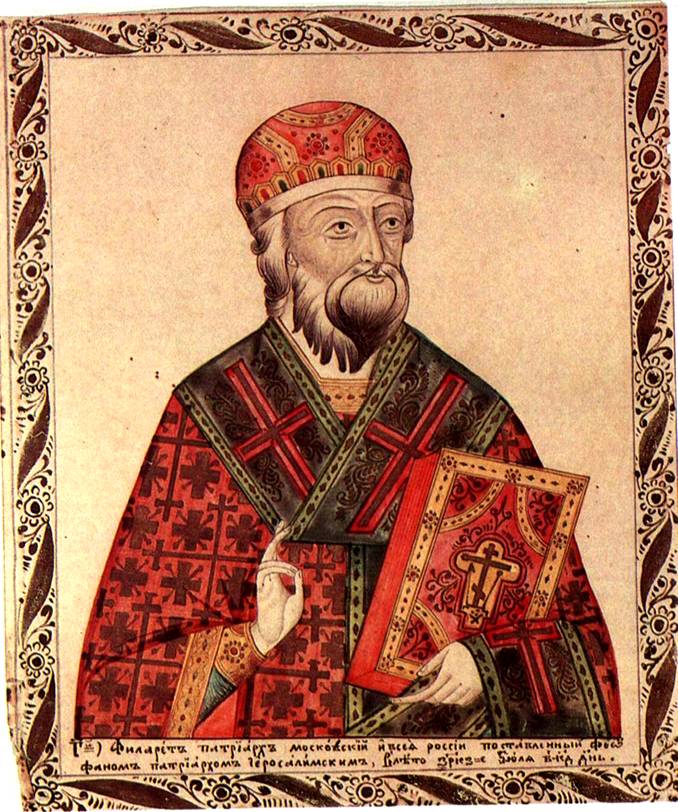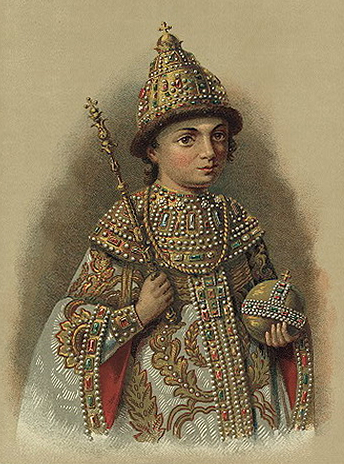|
Boris Pushkin
Boris Pushkin, Russian ''Борис Иванович Пушкин'' (''ca.'' 1590–1659) was a Russian diplomat and officeholder. Between 1610 and 1619 Boris Pushkin was in Polish captivity together with Patriarch Filaret and other members of the Russian embassy. He was the head of the Great Embassy to Sweden in 1632–33, and in 1649 an envoy to Sweden. Pushkin was a deputy chief of the criminal police department ("Razboiny prikaz") under Yuri Suleshev (1630–34) and Yuri Sitsky (1641–42), and in 1646 became its chief. In 1635–39 he was a governor of Mangazeya. Boris Pushkin was Aleksey Trubetskoy's brother-in-law. Russian nobility Pushkin Alexander Sergeyevich Pushkin (; rus, links=no, Александр Сергеевич ПушкинIn pre-Revolutionary script, his name was written ., r=Aleksandr Sergeyevich Pushkin, p=ɐlʲɪkˈsandr sʲɪrˈɡʲe(j)ɪvʲɪtɕ ˈpuʂkʲɪn, ... 1659 deaths Year of birth unknown {{Russia-noble-stub ... [...More Info...] [...Related Items...] OR: [Wikipedia] [Google] [Baidu] |
Patriarch Filaret (Feodor Romanov)
Feodor Nikitich Romanov (russian: Фео́дор Ники́тич Рома́нов, ; 1553 – 1 October 1633) was a Russian boyar who after temporary disgrace rose to become patriarch of Moscow as Filaret (russian: Филаре́т, ), and became de facto ruler of Russia during the reign of his son, Mikhail Feodorovich. Biography The second son of the prominent boyar Nikita Romanovich, Feodor was born in Moscow and was the first to bear the Romanov surname. During the reign of his first cousin Feodor I (1584–1598), young Feodor Romanov distinguished himself both as a soldier and a diplomat, fighting against the forces of John III of Sweden in 1590, and conducting negotiations with the ambassadors of Rudolf II, Holy Roman Emperor from 1593 to 1594. He was made a boyar in 1583. On the death of the childless tsar, he was the popular candidate for the vacant throne; but he acquiesced in the election of Boris Godunov, and shared the disgrace of his too-powerful family three year ... [...More Info...] [...Related Items...] OR: [Wikipedia] [Google] [Baidu] |
Prikaz
A prikaz (russian: прика́з, ''prikaz''; , plural: ) was an administrative, judicial, territorial, or executive office functioning on behalf of palace, civil, military, or church authorities in Muscovy and in Russia from the 15th to the 18th centuries. The term usually suggests the functionality of a modern "ministry", "office" or "department". In modern Russian, ''prikaz'' literally means an "order". Most of the prikazes were subordinated to the Boyar Duma. Some of them (palace prikazes (russian: links=no, дворцовые приказы, ) were subordinated to the ''taynyi prikaz'' or ''pervyi prikaz'', which answered directly to the tsar. The patriarch of Moscow and All Russia had his own prikazes. History Originally, prikazes were created by private orders (russian: приказ, prikaz) given by the tsar to a certain person. The functions of the prikazy would be led by boyars and professional administrators. From 1512, the term "Prikaz" started to be used to refer t ... [...More Info...] [...Related Items...] OR: [Wikipedia] [Google] [Baidu] |
Yuri Suleshev
Yuri may refer to: People and fictional characters Given name *Yuri (Slavic name), the Slavic masculine form of the given name George, including a list of people with the given name Yuri, Yury, etc. * Yuri (Japanese name), also Yūri, feminine Japanese given names, including a list of people and fictional characters *Yu-ri (Korean name), Korean unisex given name, including a list of people and fictional characters Singers *Yuri (Japanese singer), vocalist of the band Move *Yuri (Korean singer), member of Girl Friends * Yuri (Mexican singer) *Kwon Yu-ri, member of Girls' Generation Footballers *Yuri (footballer, born 1982), full name Yuri de Souza Fonseca, Brazilian football forward *Yuri (footballer, born 1984), full name Yuri Adriano Santos, Brazilian footballer *Yuri (footballer, born 1986), full name Yuri Vera Cruz Erbas, Brazilian footballer *Yuri (footballer, born 1989), full name Yuri Naves Roberto, Brazilian football defensive midfielder *Yuri (footballer, born 1990), full ... [...More Info...] [...Related Items...] OR: [Wikipedia] [Google] [Baidu] |
Yuri Sitsky
Yuri may refer to: People and fictional characters Given name *Yuri (Slavic name), the Slavic masculine form of the given name George, including a list of people with the given name Yuri, Yury, etc. * Yuri (Japanese name), also Yūri, feminine Japanese given names, including a list of people and fictional characters *Yu-ri (Korean name), Korean unisex given name, including a list of people and fictional characters Singers *Yuri (Japanese singer), vocalist of the band Move *Yuri (Korean singer), member of Girl Friends * Yuri (Mexican singer) *Kwon Yu-ri, member of Girls' Generation Footballers *Yuri (footballer, born 1982), full name Yuri de Souza Fonseca, Brazilian football forward *Yuri (footballer, born 1984), full name Yuri Adriano Santos, Brazilian footballer *Yuri (footballer, born 1986), full name Yuri Vera Cruz Erbas, Brazilian footballer *Yuri (footballer, born 1989), full name Yuri Naves Roberto, Brazilian football defensive midfielder *Yuri (footballer, born 1990), full ... [...More Info...] [...Related Items...] OR: [Wikipedia] [Google] [Baidu] |
Mangazeya
Mangazeya (russian: Мангазе́я) was a Northwest Siberian trans-Ural trade colony and later city in the 17th century. Founded in 1600 by Cossacks from Tobolsk, it was situated on the Taz River, between the lower courses of the Ob and Yenisei Rivers flowing into the Arctic Ocean. The name derives from a Nenets ethnonym ''Monkansi'' or ''Mongandi''. Russian settlers of the White Sea coasts of Russia (''pomors'') founded a route along the Arctic coast to Arkhangelsk to trade with Norwegian, English and Dutch merchants. Mangazeya accumulated furs and ivory (walrus tusks) around the year to be shipped out during the short Northern summer. Trade also occurred along the Siberian River Routes' Northern Route. It became "a virtual Baghdad of Siberia, a city-state, all but independent of the Russian Empire in its wealth and utter isolation." The Northern Sea Route was forbidden in 1619 under the penalty of death and the city closed to outsiders: navigational markings were torn ... [...More Info...] [...Related Items...] OR: [Wikipedia] [Google] [Baidu] |
Aleksey Trubetskoy
Prince Aleksey Nikitich Trubetskoy (russian: Алексей Никитич Трубецкой; c. 17 March 1600 – 1680) was the last voivode of the Trubetskoy family and a diplomat who was active in negotiations with Poland and Sweden in 1647 and with the ambassadors of Bohdan Khmelnytsky in 1654. He was the godfather of Peter I of Russia. Under Tsar Michael's rule Aleksey Trubetskoy was in disfavour with the powerful Patriarch Filaret and was appointed to govern distant towns of Tobolsk and Astrakhan. But the situation changed after Michael's death in 1645 and Alexis I's succession to the throne, when Trubetskoy's close friend Boris Morozov became a head of government. In 1646, Trubetskoy was appointed a commander of the Tsar's personal Guard regiment. In 1654, Prince Aleksey Trubetskoy on the side of Alexis I of Russia led the southern flank of the Russian army from Bryansk to the Grand Duchy of Lithuania. The territory between the Dniepr and Berezyna rivers was overrun q ... [...More Info...] [...Related Items...] OR: [Wikipedia] [Google] [Baidu] |
Russian Nobility
The Russian nobility (russian: дворянство ''dvoryanstvo'') originated in the 14th century. In 1914 it consisted of approximately 1,900,000 members (about 1.1% of the population) in the Russian Empire. Up until the February Revolution of 1917, the noble estates staffed most of the Russian government and possessed a Gentry assembly. The Russian word for nobility, ''dvoryanstvo'' (), derives from Slavonic ''dvor'' (двор), meaning the court of a prince or duke (''kniaz''), and later, of the tsar or emperor. Here, ''dvor'' originally referred to servants at the estate of an aristocrat. In the late 16th and early 17th centuries, the system of hierarchy was a system of seniority known as ''mestnichestvo''. The word ''dvoryane'' described the highest rank of gentry, who performed duties at the royal court, lived in it (''Moskovskie zhiltsy''), or were candidates to it, as for many boyar scions (''dvorovye deti boyarskie'', ''vybornye deti boyarskie''). A nobleman is call ... [...More Info...] [...Related Items...] OR: [Wikipedia] [Google] [Baidu] |
People From The Tsardom Of Russia
A person (plural, : people) is a being that has certain capacities or attributes such as reason, morality, consciousness or self-consciousness, and being a part of a culturally established form of social relations such as kinship, ownership of property, or legal obligation, legal responsibility. The defining features of personhood and, consequently, what makes a person count as a person, differ widely among cultures and contexts. In addition to the question of personhood, of what makes a being count as a person to begin with, there are further questions about personal identity and self: both about what makes any particular person that particular person instead of another, and about what makes a person at one time the same person as they were or will be at another time despite any intervening changes. The plural form "people" is often used to refer to an entire nation or ethnic group (as in "a people"), and this was the original meaning of the word; it subsequently acquired its us ... [...More Info...] [...Related Items...] OR: [Wikipedia] [Google] [Baidu] |
1659 Deaths
Events January–March * January 14 – In the Battle of the Lines of Elvas, fought near the small city of Elvas in Portugal during the Portuguese Restoration War, the Spanish Army under the command of Luis Méndez de Haro suffers heavy casualties, with over 11,000 of its nearly 16,000 soldiers killed, wounded or taken prisoner; the smaller Portuguese force of 10,500 troops, commanded by André de Albuquerque Ribafria (who is killed in the battle) suffers less than 900 casualties. * January 24 – Pierre Corneille's ''Oedipe'' premieres in Paris. * January 27 – The third and final session of the Parliament of the Commonwealth of England, Scotland and Ireland is opened by Lord Protector Richard Cromwell, with Chaloner Chute as the Speaker of the House of Commons, with 567 members. "Cromwell's Other House", which replaced the House of Lords during the last years of the Protectorate, opens on the same day, with Richard Cromwell as its speaker. * January ... [...More Info...] [...Related Items...] OR: [Wikipedia] [Google] [Baidu] |





_1938.jpg)
